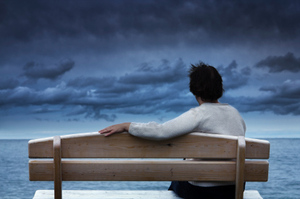The scope of Depression
A Mood Disorder
Depression is a mood disorder. It generally means that on is 'feeling down' or 'blue'; but this misses the fact that it consists of a combination of elements, not just one feature. Clinical depression is pronounced when several elements such as difficulties sleeping, poor appetite, reduced concentration, and fveelings of hopelessness and worthlessness persist for at least 2 weeks.
A Most Common Disorder
Depression is the most common psychiatric condition globally. Approxiamtely 17% of the population of Europe has had some experience with depression in the last 6 months. There is no single face to depression. For some it is low mood or lack of concentration while for others it is reduced ability to interact with loved ones, or lack of energy and preoccupation negative themes and ideas. Depression rarely comes alone. It is usually accompanied by anxiety which may manifest in panic attacks, phobias or obsessive-compulsive behaviour. Between 20-25% of women and 7-125 of men will suffer clinical depression during their lifetime.
But Few Seek Help
The surprising thing about depression is how very few individuals seek mental health services. Only 12% of those depressed see someone. For this reason depression has an important public health issue. The degree oif disability is comparable to major illnesses. depressed patients spend more time in bed than patients with lung disease or arthritis.
Antidepressants
Currently antidepressants are prescribed for the acute period, then for continuation of treatment for 6 months more, and as maintenance treatment from 3 to 5 years more. However, antidepressant medications have their effect by suppressing the symptoms; they do not address the supposed causes of the depression. In addition antidressant medication is not suitable for pregnant women, those undergoing surgery and those experienceing side effects. Thus, between 30 - 40% stop taking their medication.
Comments
0 comments for this post


Share this blog post